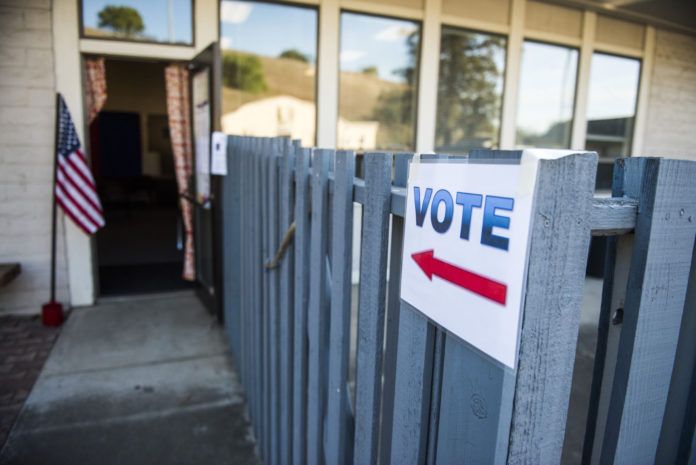In a step toward building the first massive wind farms off California’s coast, three Assemblymembers on Feb. 12 proposed a $1 billion bond act to help pay for the expansion of ports.
The bill, if approved, would place a bond before voters aimed at helping ports build capacity to assemble, construct and transport wind turbines and other large equipment. Long Beach and Humboldt County have plans to build such expansion projects.
Port expansion is considered critical to the viability of offshore wind projects, which are a key component of the state’s ambitious goal to switch to 100% clean energy. The California Energy Commission projects that offshore wind farms will supply 25 gigawatts of electricity by 2045, powering 25 million homes and providing about 13% of the power supply.
The first step to building these giant floating platforms has already been taken: The federal government has leased 583 square miles of ocean waters about 20 miles off Humboldt Bay and the Central Coast’s Morro Bay to five energy companies. The proposed wind farms would hold hundreds of giant turbines, each as tall as a skyscraper, about 900 feet high. The technology for floating wind farms has never been used in such deep waters, far off the coast.
An extensive network of offshore and onshore development would be necessary. Costly upgrades to ports will be critical, along with undersea transmission lines, new electrical distribution networks and more.
The Port of Long Beach, for instance, is planning Pier Wind, a $4.7 billion, 400-acre offshore wind turbine assembly terminal. One of the largest and busiest ports in the nation, it is the only location in California close to being able to assemble and deploy turbines, according to previous CalMatters reporting.
In Humboldt County, some federal grants have been awarded to develop its small port for wind farms. The federal Department of Transportation last month awarded the Humboldt Bay harbor district $426.7 million to build a new marine terminal where turbines can be assembled and transported.
The proposed bond measure was announced today by Rick Chavez Zbur, a Democrat from Los Angeles, as well as other members of the Assembly. Jim Wood, a Democrat from Ukiah, and Josh Lowenthal, a Democrat from Long Beach, are coauthors.
Two separate climate bond bills also aim to pay for climate-related projects, such as shoring up vulnerable communities and wildfire prevention efforts. Each house has passed its own version of a bond. Negotiations over whether they will appear on the November ballot remain open.
The debate over adding debt comes as California faces a projected $38 billion deficit, according to Gov. Gavin Newsom’s estimate last month.
Zbur, the lead author of AB 2208, the offshore wind bond bill, said at a press conference today that he is in talks with legislators who authored the climate bonds about earmarking funds for offshore wind in lieu of moving ahead with his proposed bond measure.
“We are engaged with discussions with them on that, and that would be another alternative to moving forward,” Zbur said. “Our goal today is really to make sure that this $1 billion is included in the range of bonds.”
CalMatters has reported that offshore wind has raised many issues for California since it is experimental technology on a fast track off Humboldt County and Morro Bay. Humboldt officials hope the projects would boost their struggling economy, while some Central Coast residents are fighting the wind farms because they say it would industrialize their coastline.
Copyright © 2024 Bay City News, Inc. This story was originally published by CalMatters at http://tinyurl.com/4v2p385w.











There gonna need it to power that bullet train when it comes onboard in 2050!